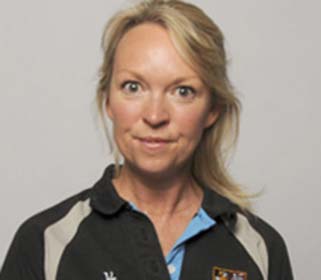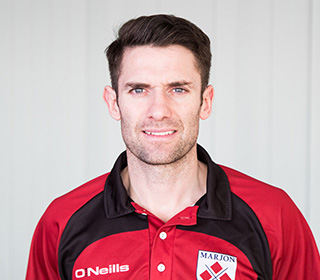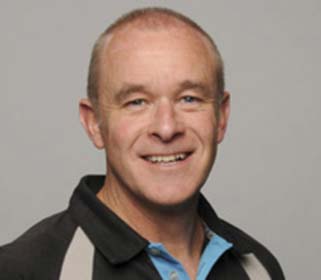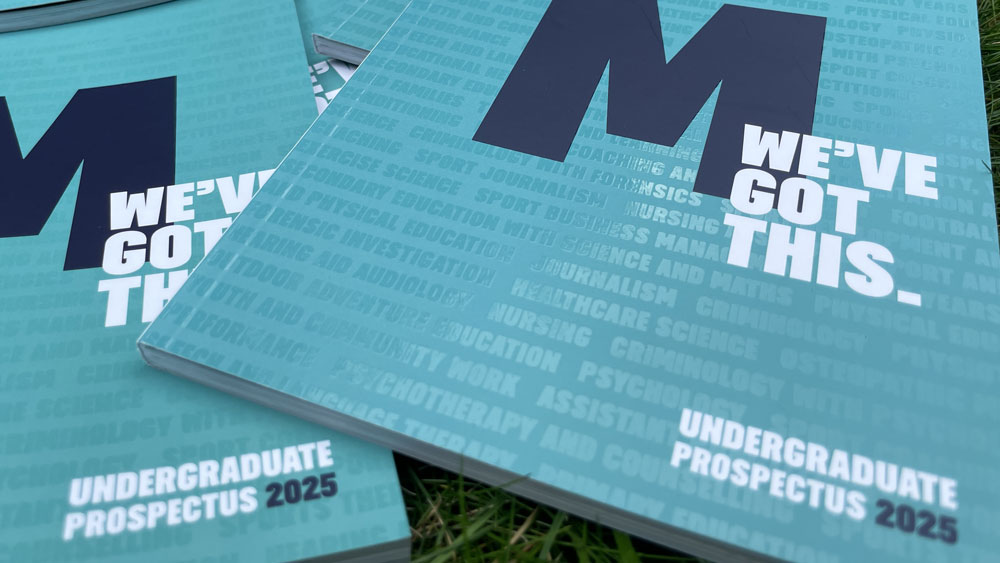
BA (Hons) Physical Education
If you know that you would like a career in teaching, but are not sure whether you would like to work in the primary or secondary sectors, the BA (Hons) Physical Education will help you to decide.


Build confidence for a career in physical education

Apply now for this course
Entry requirements
Three A-levels at grades CCC or above
Or BTEC triple grades MMM or above
Or Access 23-45 D/M with min 6D
Or T level P (C+)
And GCSE English Language at grade 4 or grade C or above
We will accept 2 AS levels in lieu of one A level but must be accompanied by 2 A Levels or BTECs. General Studies is excluded.
UCAS points 96
UCAS code XC63
UCAS institution code P63
Duration Three years full time
Course Summary
If you enjoy being physically active and you want to share your knowledge and enthusiasm with children and teenagers, you may be a perfect candidate for a career in PE teaching.
The BA (Hons) Physical Education degree will enable you to develop the knowledge, skills and understanding to challenge outdated notions of physical education and thus play a part in creating the next generation of healthy and physically literate individuals. The programme is designed to support you to explore a variety of teaching options and preferences, where you may not be ready to commit to primary or secondary education.
In your second year, you will undertake a 100-hour placement in a school setting. You can choose to carry out your placement in either a primary school, a secondary school or a school focused on pupils with special needs (SEND). You can also choose to split your placement between different schools.
Throughout the programme you will be engaging with pedagogy (the method and practice of teaching) from both a theoretical and a practical perspective through delivering a diverse range of physical activities to children and young people in school settings. In each year of your degree you will gain different types of experience in working with pupils.
You will engage with six key themes which are associated with a broad and balanced delivery of PE, and which include understanding the role of less traditional physical activities such as street sports in engaging those pupils who are less keen to be engaged. This means graduates feel confident to challenge narrow approaches to PE and to deliver a creative and inclusive approach, meaning pupils enjoy their lessons more.
Marjon is a sports university through and through, and you will study in world-class sports facilities including our sports science laboratory, climatic chamber, 25m swimming pool and 4G and astro-turf pitches. You may also enjoy extra-curricular sporting activities or playing in our keenly-supported sports teams.
In order to achieve Qualified Teaching Status (QTS), which you need to teach in most UK schools, you'll need to follow this degree with a postgraduate teaching qualification, such as PGCE PE, PGCE Primary or School-based teacher training. The degree is designed to help you feel confident to apply for any of these routes.
Whilst most students are keen to progress into a teaching qualification, the programme provides you with extensive skills which are transferable into many careers, building your confidence in coaching and development skills, leadership skills and critical thinking skills.
Why this course at Marjon?
Study at our world class Sport & Health Centre
Study in small groups with like-minded individuals and wide range of expert tutors
100 hours on placement in a range of schools and colleges
Easy access to additional qualifications to enhance your career prospects
Variety of teaching and assessment styles enable you to find your own strengths
Gain experience of teaching PE at both primary and secondary levels to inform your career choices
Modules for this course
Course Snapshot
“ Our first year was mainly learning the basics of teaching. We looked at how students develop physically as they grow up and how attitudes to exercise might change. During the second year we learnt how to deliver a diverse range of sports through hands-on practical experience with our lecturers. In the third year we’re fine-tuning our teaching and we have had a lot of chances to practice our skills in a practical environment. We’re also learning about how to deliver sport to those with special educational needs.”
Please note: optional modules have been marked by an *
1st Year
Engaging with learning, personal and professional development
Fundamental movement skills
Sports science principles of growth and development
Sport coaching and the coaching process
PE, Physical Activity, Health and Lifelong Participation
International studies in sport and physical education
2nd Year
Work based learning (placement)
Physical education through the environment
Pedagogy and performance in physical education
Learning theory and the learner
Planning and assessment through physical activity
Research methods in sport and physical education
3rd Year
Pedagogy in practice
Diversity in physical education
Thematic learning in education*
Working with Children and Young People with Different Needs
Honours project (dissertation)
Current students say...
Lucy Windsor
“I enjoy the family feel which the course and university create. Being a small group you make such good friends to support you and have a laugh with. The lecturers take a big interest in knowing and developing you. Going coasteering and teaching pupils each week is an amazing opportunity. Throughout 3 years I have never been bored! The next stage is to start my PGCE. With the support from the amazing lecturers I feel I am ready to take the next step in hope of becoming an outstanding teacher.”
Olly Cook
“I really enjoy the practical nature of the course. It is really beneficial to learn the theory and then put this into place so I can completely understand how it works. I’ve enjoyed the range of modules, from outdoor adventure education to sport science I feel that a huge spectrum has been covered. The course has given me first hand opportunities to work with primary and secondary students. Having experience of both allowed me to decide that primary education is the one for me.”
Charley Wright
“The course enabled me to become more confident and competent as a teacher. Following a successful work placement, I was able to gain invaluable experience, skills and connections with local schools, which led to me gaining paid employment supporting learning in PE lessons in primary schools. With this experience I can happily say I have received offers from all the postgraduate teacher training providers I applied to for my Primary PGCE next year, with Marjon being my chosen destination.”
Ask a student
This course is perfect if you’re curious about
Is it possible to influence children to engage with lifelong physical activity?
Can schools have an impact on the health of children and adolescents?
Can you teach maths or literacy through physical activity?
Could high quality physical activity in schools save the NHS budget in decades to come?
How do you engage the disengaged with physical activity and sport?
Could less traditional activities such as yoga or street surfing motivate more children?
“ It has been an absolute delight watching our children in Gym Club thrive from week to week with regards to their gross motor skills. The children's listening and attention skills, confidence and resilience also thrived. This has been particularly evident with the children from less advantaged households. Equally the male role models have had a great impact on our male children and also on those from our single parent families. Opportunities like this are fundamental.”
See where our graduates are now
Hannah Prisk
“Through the range of theory, practical lessons and placement opportunities my confidence and ability to teach a range of age groups has developed considerably. I’m see the pupils develop into confident young individuals through the support I give them. I was set on becoming a secondary PE teacher, however, the course enabled me to experience a range of environments and ages leading me to change my focus to primary teaching. I’m now doing a PGCE to become a teacher and I love what I am doing.”
Hannah is studying PGCE Primary to achieve Qualified Teacher Status (QTS)
What might you become?
The majority of graduates enter the teaching profession in either primary or secondary education, following a PGCE or School Direct programme.
Your skills and experiences on the course could also help you move into other roles in education, coaching, sport, sport development. Students in the past have also joined the Police, the Fire Service and the Armed Services.
There is also opportunity to go onto further a range of sport-related Master's degrees available through Plymouth Marjon University.
How you’ll be taught and assessed?
How will you be taught?
Includes lectures, seminars, workshops, practical sessions, offsite visits and direct experience of teaching children and young people both on campus and in schools.
How will you be assessed?
Includes presentations, essays, planning and delivering lessons, designing innovative teaching and learning resources, carrying out risk assessments, blogs, portfolios, practical skills assessment and a final written Honours Project.

Erica has taught in numerous schools, in both the primary and secondary sectors. She is particularly interested in the relationship between physical activity and health. Erica is passionate about developing physical literacy in foundation and primary aged children to enhance engagement and participation. She is committed to developing a more accessible Physical Education curriculum that meets the needs of all pupils, including those who do not identify as 'sporty'. Erica is also interested in the use of training modalities such as Pilates and Yoga based practices to provide holistic training and diverse learning opportunities in school. Erica has a specific interest in the design of authentic and 'real life' learning opportunities that are based upon innovation and creativity. She has a strong interest in the learning opportunities afforded by adopting a thematic approach to the design and delivery of learning across ages. She has a particular interest in the delivery of curriculum subjects and the wider curriculum through the physical domain. Erica also delivers dance pedagogy across degree programmes based upon her dance background and post graduate studies at the Laban Centre. She has a personal interest in talent identification and development in children with a particular focus on dance. She is also keen to encourage the development of dance in Devon.
Fees and funding
Fees UK students: £9,535 per annum
Fees for International students: £14,600 per annum
This fee covers your tuition and access to course-specific equipment and facilities, as well associated services including access to the library, study skills support, IT support, student support and wellbeing services and membership of the Student Union. There may be additional costs by course.
Funding available for this course
Our Student Funding Advisors offer confidential and impartial advice about your funding options.
Learn moreLecturers

Aaron is a Senior Lecturer in Sport Coaching & Physical Education and is also the Programme Leader for BA (Hons) Sport Coaching. He teaches predominately across the Sport Coaching & Physical Education degree programmes focusing specifically on practice design, skill acquisition, performance analysis, participation coaching and performance coaching.

Kelvin Kirk is a qualified PE teacher who now teaches sports coaching at Marjon. He has risen through the coaching ranks of volleyball to enable him to award coaching qualifications; he has also more recently coached junior football for several years. His research interests are in primary PE and the increasing use of modern technology in enhancing PE.
More information
Please note that if it is your intention to enter the teaching profession and continue your studies at postgraduate level, you will need to pass the Qualified Teaching Status (QTS) skills tests prior to starting a PGCE or School Direct programme. The course includes a 100 hour PE placement in the second year, usually taken in a local school or college. You don’t need QTS skills tests prior to taking part. In order to achieve Qualified Teacher Status, you will need to follow this degree with a PGCE or School Direct programme.
Find out more about studying BA (Hons) Physical Education (non QTS) at Marjon

Discover Uni collects data about university courses in the UK. All universities publish Discover Uni data on their online course pages enabling you to compare similar courses at different universities.


